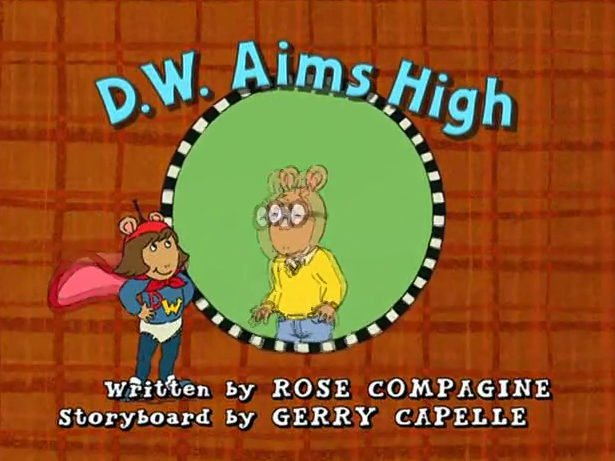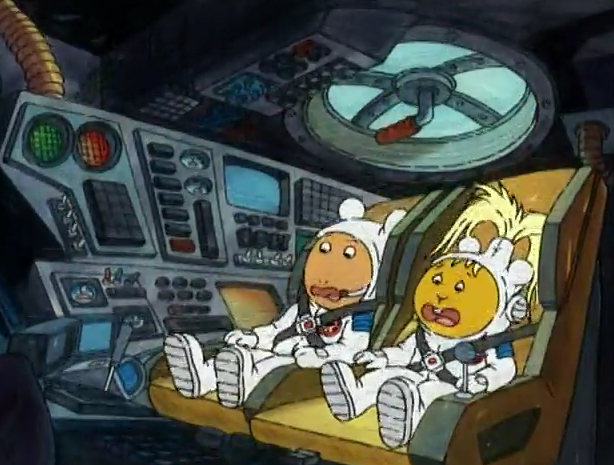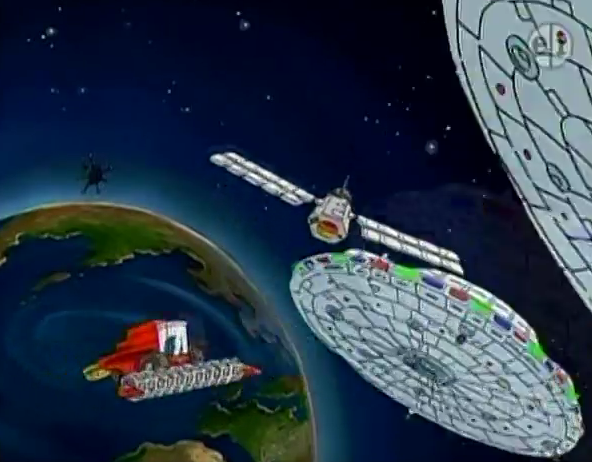January 2006. The start of the year meant a new company had kind of just popped in the media world. That being, Viacom. That's a weird thing to say, but in 2005, Viacom and CBS broke up, a marriage they felt was a failure. (They still had the same arching major shareholder though.) CBS Corp was the old Viacom, the new Viacom took the cable assets. There's one asset that was created by the old Viacom, that would be UPN. UPN had turned turned 10 in 2005, it made it!
UPN had a competitor, the WB network, owned primarily by Time Warner. In the world of pie (stay with me) network TV was 6 major slices. (ABC, CBS, NBC, FOX, UPN, the WB) But now let's pretend that pie wasn't cut in equal shares, because it's not, and some have the bigger slices. (ABC, CBS,NBC, and even FOX) So two have to fight over the remaining smaller slices, well, why not combine two smaller pieces into one bigger piece. (This analogy is weird.) That was the idea of the announcement on January 24, 2006. CBS and Warner announced that they were shutting down their networks and working together on a new network called The CW (CBS -Warner) The media called it a merger but it was more a combing of resources and making a subsidiary company/network.
The idea was that UPN and WB were fighting each other, plus cable, plus other broadcast networks, so instead of fighting each other they join together like a World War and fight the others. Then, it became a gym class, where shows with the better perceived strength would get line up and the rest would be cast into the sea of sadness. Also the stronger stations , since WB and UPN, in most markets were on two different stations, why not put your network on the stronger station? (There's more that soon) I grew up in an area that had no CW station on broadcast TV, it was piped in on cable from the nearby city (Denver), we had a UPN station that launched in 1999. (KXTU) The CW ended up on that UPN station meaning the people without cable could now watch the final season of "7th Heaven". (oh)
Let's go back to the WB, back when it launched, Warner didn't own any broadcast stations at all. Most networks have a core of stations owned by themselves, (Owned and Operated Stations or O&O's) Viacom and Chris Craft had this for UPN in the early days (more on that soon). Most networks have owned stations in the top major markets: New York , Los Angeles, and Chicago. This is a heritage thing but also a core for the biggest audiences of the three biggest time zones in the US. The WB had to make an agreement with Tribune Broadcasting to distribute their network on their stations which included : WPIX-11 New York, KTLA-5 Los Angeles, and WGN -9 Chicago, plus other stations. They were the key stations for the WB. WGN's cable feed aired WB from 1995-1999 for those that didn't have a station. Meanwhile, UPN didn't have that problem at the start. In New York and LA Chris Craft owned WWOR- AND KCOP ,plus few other stations, but Viacom, the other UPN parent company owned stations as well.
In 1999, Viacom wanted to own CBS, after that , thanks to new rules where you have duopolies (two stations owned by the same company in the same market) in many markets with other rules applied. Viacom also made an ultimatum with Chris Craft: Buy UPN fully or sell it to us. Chris Craft decided to sue and try and stop the Viacom purchase of CBS. This didn't work. C.C couldn't find someone who wanted to run UPN with them so they sold to Viacom. But wait the stations? C.C owned those and found a different buyer: FOX.
Either C.C wasn't intentionally going to sell them, Viacom didn't think to buy them, or this was a power spite move they sold these stations like KCOP, WWOR, KUTP (but not KTVX or KMOL) to FOX (Viacom did end up getting what is now KBCW-TV, so? Victory?) This means that a company that owns a broadcast network owns affiliates of a network owned by someone else. (FOX later also bought WPWR-TV in Chicago from Newsweb, this was also a UPN station). By default, the largest owned station in UPN from the parent company was market 4, Philadelphia's WPSG-TV.
Any speculation that FOX would just up and kill UPN's reach did not happen. In 2003, they renewed the contract with UPN for 4 more years (
source) which math is a sign here.
This is the story of My Network TV. When the CW was announced an automatic agreement with Tribune landed the top 3 markets plus many others (like Denver) to a 10-year agreement with the CW.(Bold to assume that 10 years later the CW would exist, I mean yeah it did but, bold) This meant that the CW while, not owning their own stations in these markets did have some stable footing for 10 years. In markets where CBS owned the UPN station they ended up with the CW, except in Boston and Miami, while Tribune's WB stations ended up with the CW, except in Philadelphia and Seattle. Hold on, what about FOX? Apparently, that 4 year agreement with UPN could be voided if no UPN existed (guy taps forehead). They were left out in the cold. FOX took this not well. Most of the FOX UPN stations were branded as UPN Number and maybe UPN (City name) like WWOR was UPN 9. Quickly FOX removed all references to UPN on their stations WWOR's logo was cut to a "9" the UPN box removed. UPN was dead to them.
It wasn't just UPN stations owned by FOX many UPN and WB around the country were going to be left network-less. The idea was maybe they would go back to be indepdent stations. (KTXA in Dallas actually did) FOX had another idea.
February 22, 2006. My Network TV. The name is kind of stupid, but can't throw stones at it too much. Around this time, Myspace had taken off as a big social media site and Newscorp (then owners of FOX) had bought it. This network's name is from that idea, maybe. ( https://www.nexttv.com/news/news-corp-unveils-my-network-tv-78935) Makes it feel personal, like hey look CBS isn't your network, we are?! Don't touch!
So, you got you a network? That doesn't impress me much, you have to air stuff. They were going to use UPN's 10 hours, 2 hours a night, 5 nights a week format then add one more night for Saturday. (The former UPN stations would lose a weekend night of couple hour's syndication, while the former WB stations would be getting Sunday night back in exchange) It doesn't seem FOX just randomly got mad that the CW was announced and also iced them out, because they had plans for syndication version of English language telenovelas.
Paul Buccieri, the head of Twentith television (the then FOX owned syndication studio) thought that maybe audiences wanted soap programming but telenovela styled formats but in English for those who might not speak Spanish. This is around the same era where a new network soap hadn't been launched since 1999. The idea was to syndicate them which was bold one, as first-run scripted shows on syndication as a market were wavering and especially programming that would require stations to clear 1 hour of time to air them.
More after the Jump













